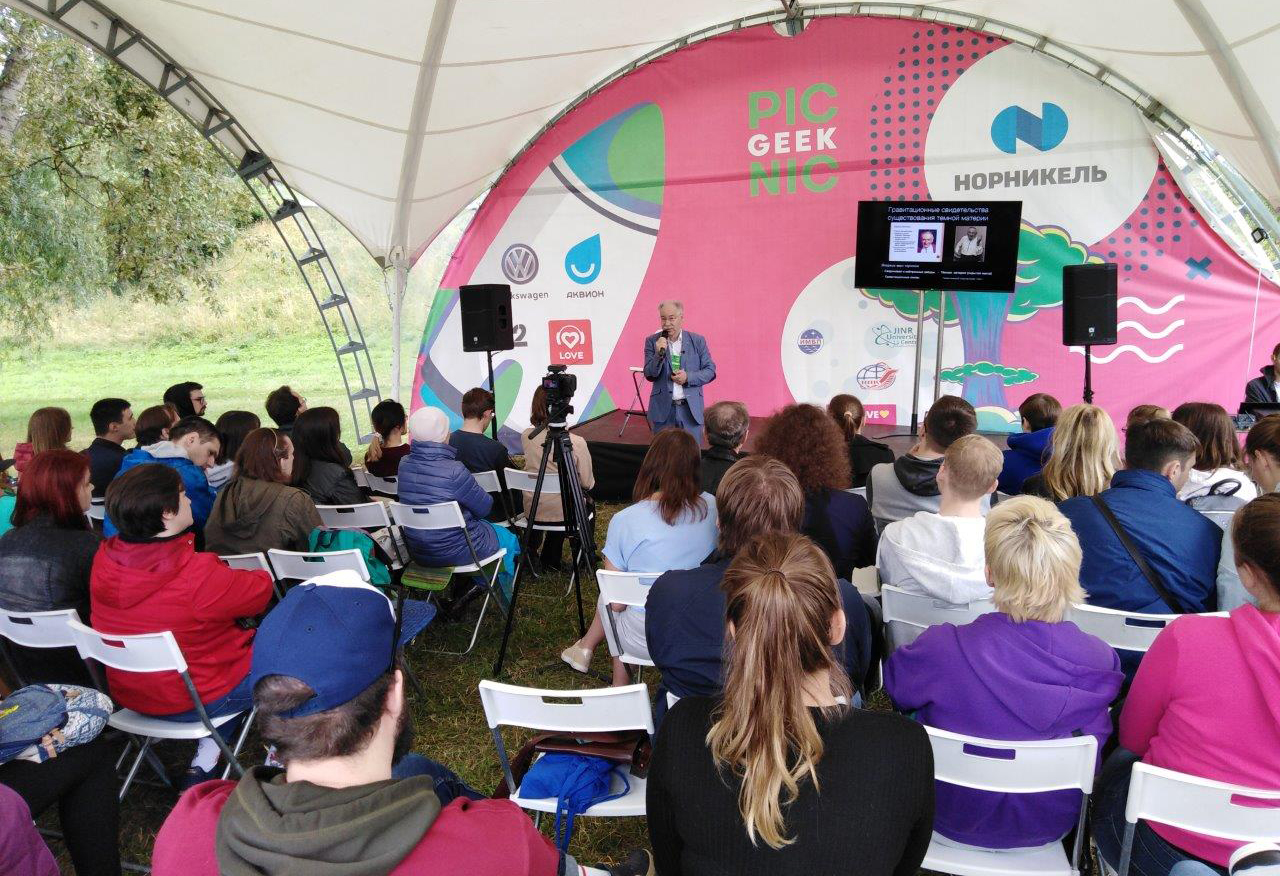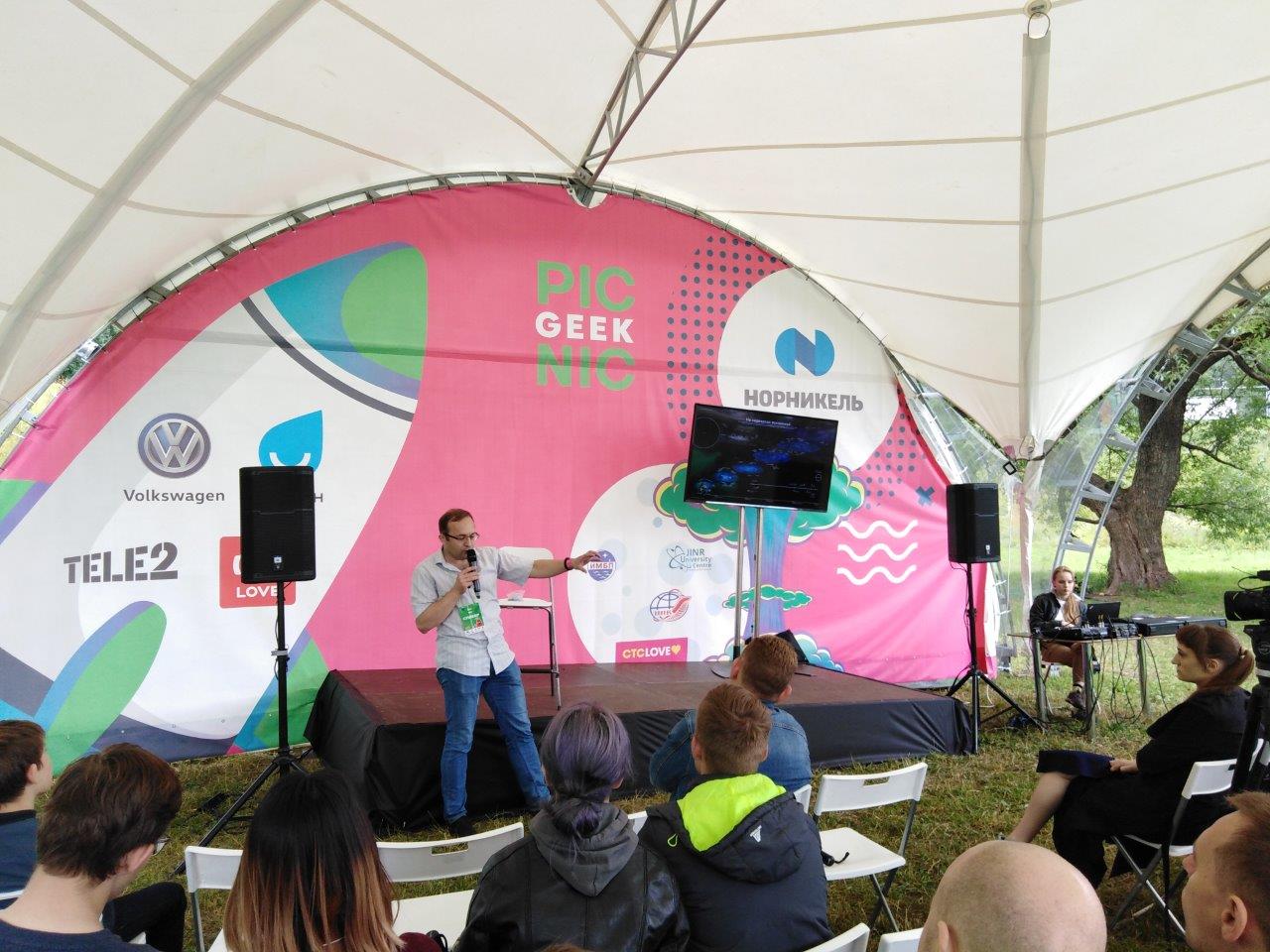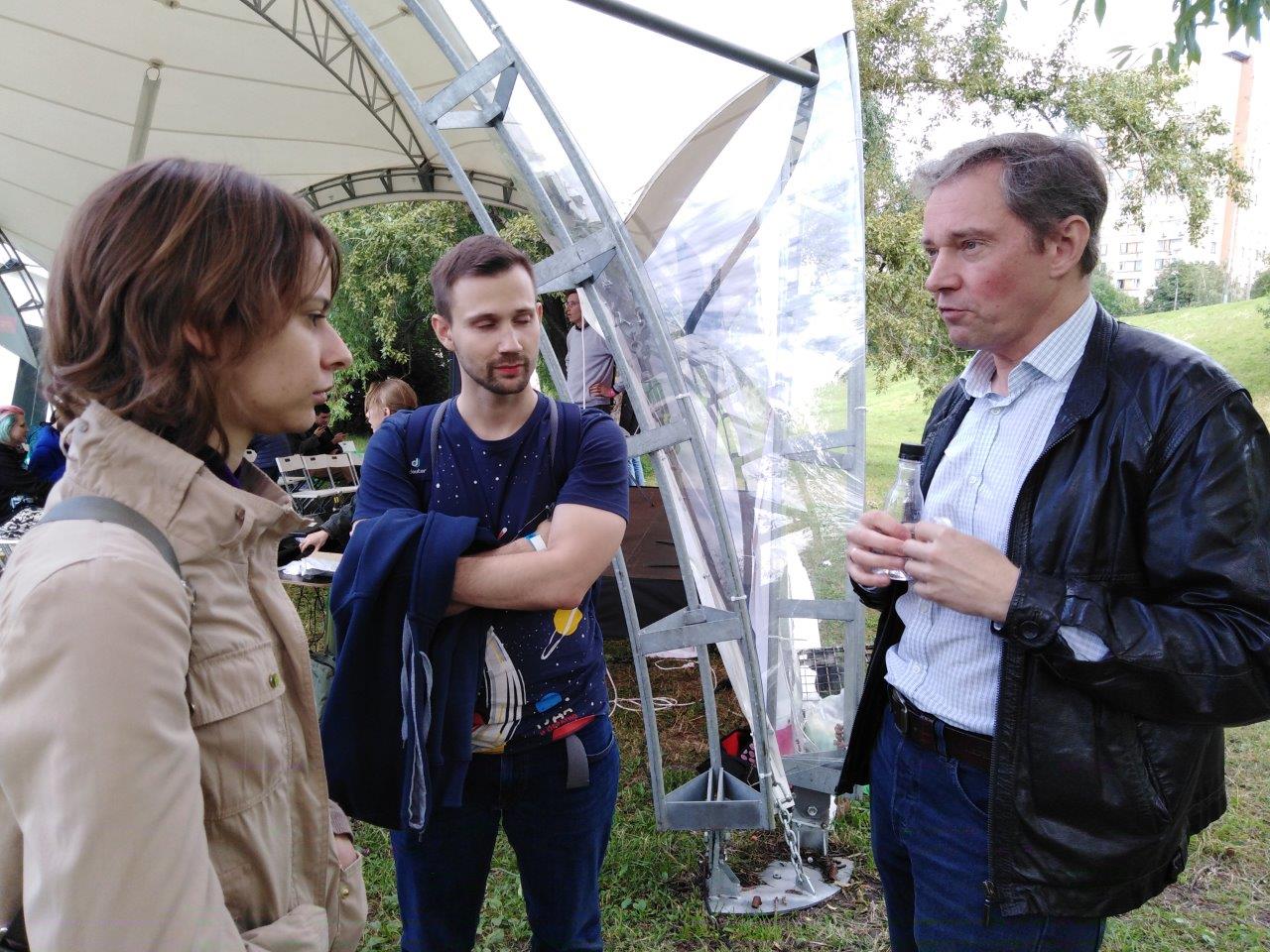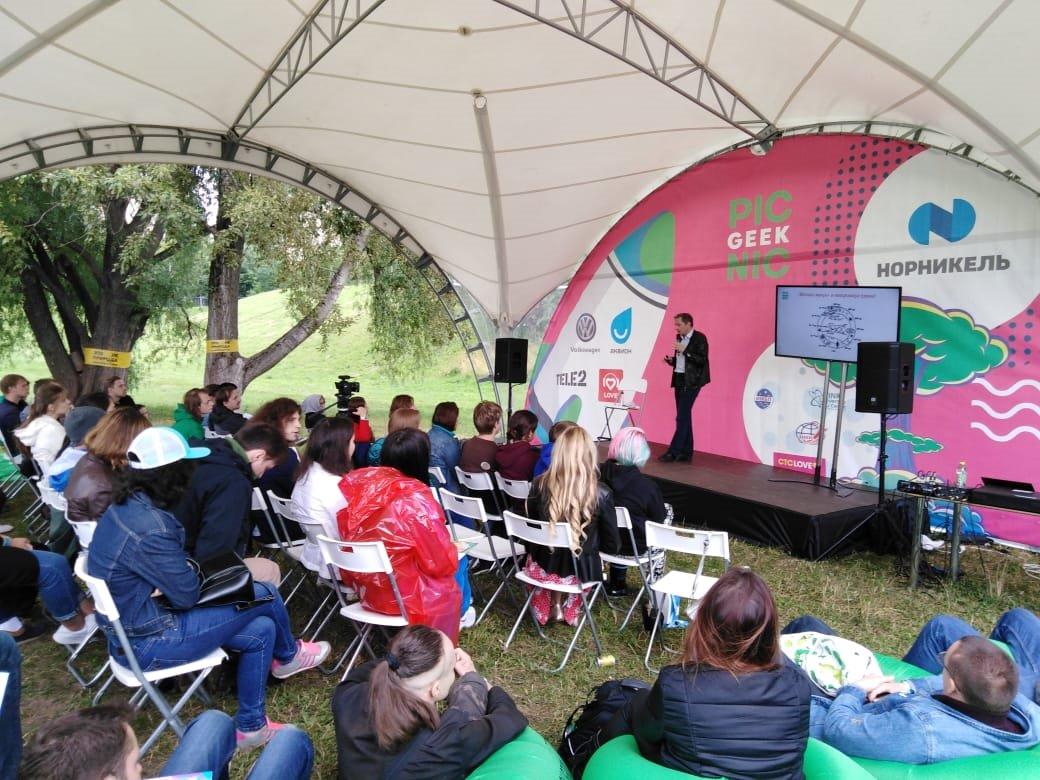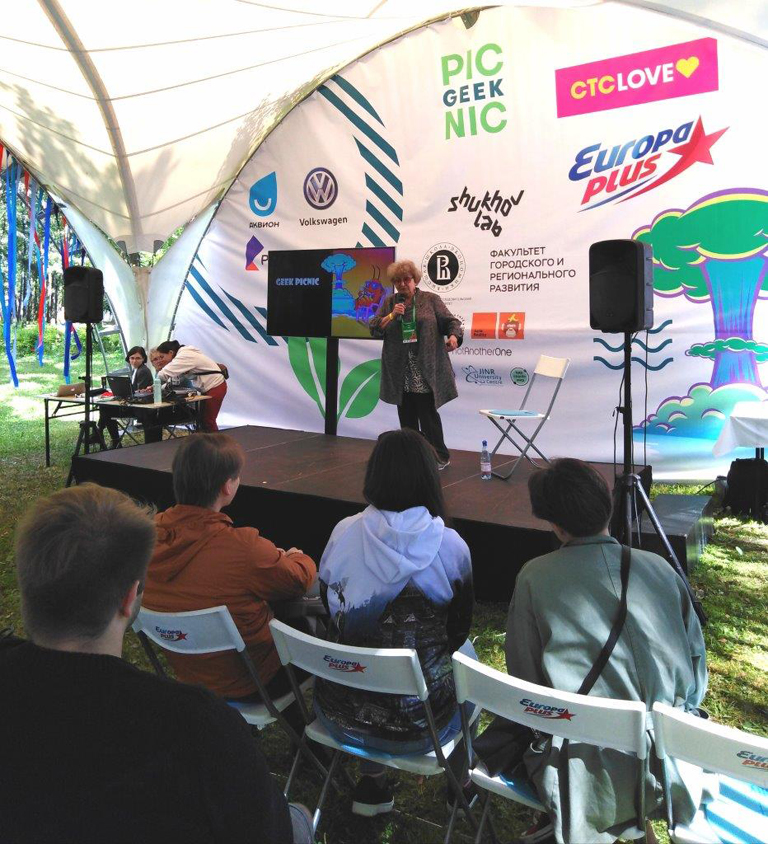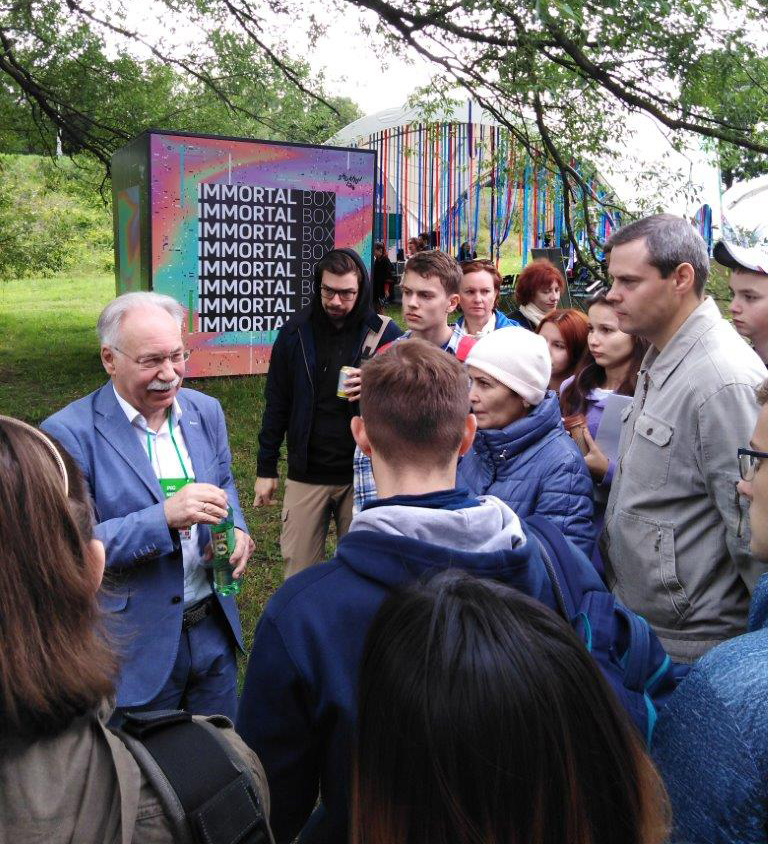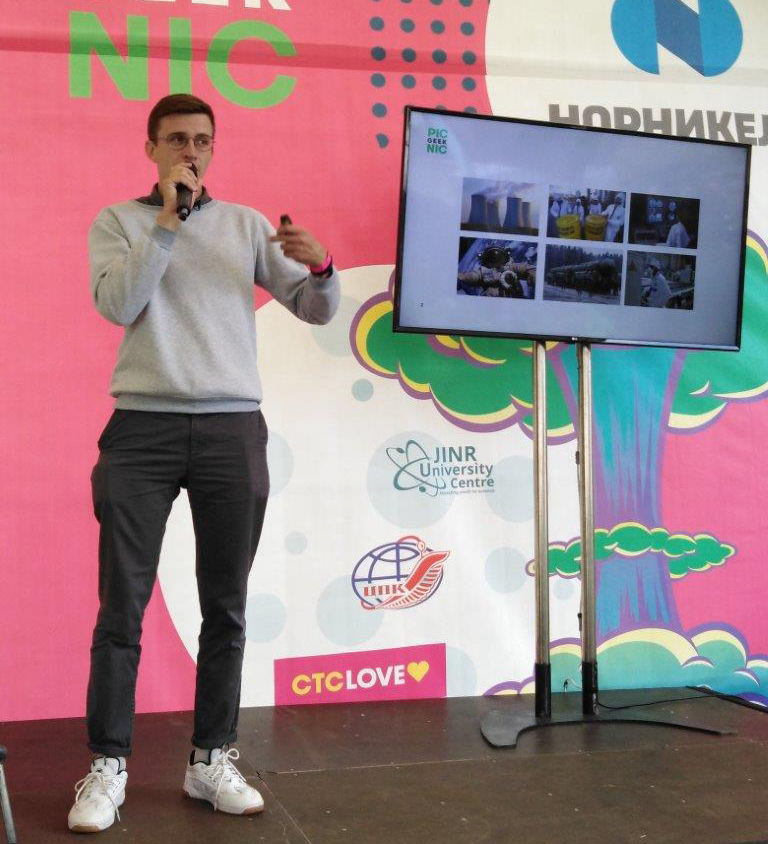JINR at the Festival of science, technology and arts “Geek Picnic”
News, 18 July 2019
On 6 – 14 July 2019, JINR took part in one of largest festivals of science, technology and arts “Geek Picnic” that annually gathers about 100,000 people at its two sites in St. Petersburg and Moscow. Prominent scientists and specialists not only from Russia but from all over the world delivered about a hundred lectures in the frames of the festival, which were devoted to the latest scientific research, and the most controversial issues of the present and the future. JINR scientists were among the lecturers.
At the “Habitat” track in St. Petersburg, a staff member of the Frank Laboratory of Neutron Physics M. V. Frontasyeva, Candidate of Physics and Mathematics, Coordinator of the UN Programme for air in Europe, delivered the lecture “Assessment of air pollution of ecosystems using the method of the neutron activation analysis of the moss as a biomonitor”. The lecture outlined the crucial aspect of solving tasks of the defence of the environment and human health, i.e. the control of air.
At the “Outer Space” track, JINR staff members told about their work on the study of the Universe. Director of the Bogoliubov Laboratory of Theoretical Physics, RAS Corresponding Member D. I. Kazakov delivered the lecture “Dark matter in space”. He presented modern knowledge about dark matter and considered the theory of hidden mass, the general energy balance of the Universe, particles, search for dark matter and its differences from dark energy. Doctor of Physics and Mathematics, RAS Prof. A. B. Arbuzov in his lecture “Secrets of cosmology” told the audience about the present state of fundamental physics of the micro- and macroworld.
VBLHEP Researcher D. K. Dryablov in his lecture “Big Bang Theory. Evolution of the Universe” presented the modern understanding of the origin and evolution of the Universe, our place in it, and the way to this knowledge. He told participants about the NICA accelerator complex being constructed now thanks to which scientists will be able to learn about the first moments of the Universe evolution that have not been studied yet.
Researcher of the Laboratory of Radiation Biology Yu. S. Severuikhin delivered the lecture “Impact of radiation on the organism in space and on the Earth”. He considered major principles of radiobiology, its significant historical aspects, told the audience about radiation sources on the Earth and in space, its danger, the radiation disease and radiation syndromes, as well as the application of radiation in medicine and radiation safety in orbital and far-space flights.
Delivered lectures evoked a vivid interest of the audience. Participants gathered around the lecturers and asked numerous questions. In total, more than 300 participants visited lectures made by JINR scientists in the frames of the Festival.
Olga Radosteva, Anastasia Suschevich
Social communication group, JINR University Centre
